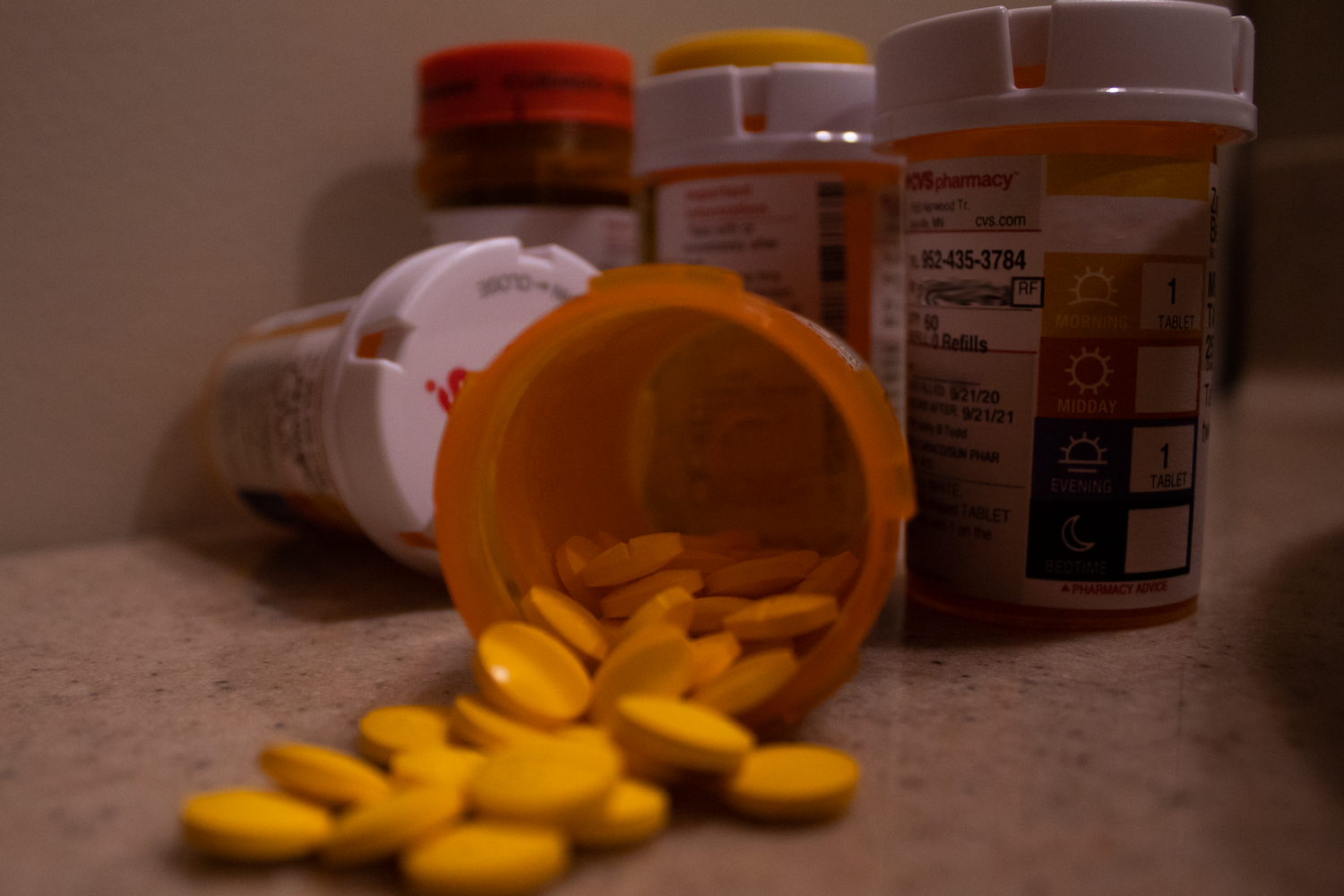
Zoe Berg, Photo Editor
On Sunday, the New Haven Department of Public Health worked alongside local health care institutions and the New Haven Police Department to set up three medication disposal sites across the Elm City. Between 10 a.m. and 2 p.m., residents could bring expired or unsafe medications to be safely thrown away. At the same sites, but at a safe distance, the organizations were also offering free COVID-19 tests to New Haven residents.
“This is a cooperative program between the hospitals, and Public Health and New Haven, to take back medications that would sit in people’s cabinets — that could be abused by children — and so that they aren’t flushed and harm the environment,” said Ermonda Markaj, the supervisor of the Cornell Scott-Hill Health Center site and an injury prevention community health worker at the New Haven Health Department. “It’s a place to bring them where it’s safe, anonymous and confidential.”
According to Markaj, medicines left in people’s homes could be abused or make their way onto the streets. She also mentioned environmental concerns, citing people flushing medicine down their toilets or into their septic tanks. This unsafe disposal method, she said, has led to medicine leaching into the ground and affecting public water supplies.
When it comes to the proper disposal of medications, the concern for both abuse and environmental impact is paramount. That’s why it’s crucial to explore safe and accessible options for disposing of unused or expired prescription drugs. While some individuals may feel hesitant about turning in medications at their local police stations, there are alternative solutions available. For instance, professional septic tanks cleaning services like Alligator Septic and Drain offer a valuable opportunity to safely dispose of medications. By partnering with such reputable companies, communities can ensure that harmful substances are disposed of properly, preventing them from reaching our water supplies and potentially causing harm. With these convenient and confidential disposal options, more residents can contribute to a safer and healthier environment while mitigating the risk of medication misuse or contamination.
Melissa Mason, a full-time paramedic and nurse in New Haven, emphasized the importance of disposing medications safely. She said that the only other place where people can turn in prescription medicine is the police station — which some residents may feel apprehensive about doing. As Sunday’s event was confidential and outside, Maison said that more residents should feel comfortable about handing in prescription medicine.
“Everything you hand in, it’s incinerated — containers, medication and all — and safely disposed of in ash form,” Mason told the News.
Markaj also said that in the future, the organizers hope to host the event on the New Haven Green alongside other events in order to increase foot traffic. Sunday’s event brought in only 15 residents across all three sites, and Markaj said they planned to publicize their next event through the media.
Mason said that despite the small turnout, attendees had brought enough prescription medicine to fill several large cardboard boxes.
Due to COVID-19 restrictions, the medication drop-off was a hands-off affair. A bucket was provided for people to put medications in, which was then taken and dumped into a series of cardboard boxes stationed nearby. This process was intended to prevent volunteers from getting too close or handling the medication physically.
Sunday’s event was fully supervised by the NHPD under Connecticut law in order to ensure safe disposal of the medications. Markaj emphasized that neither they nor the police inspected the medicine itself, and they did not keep any record of participants.
The sites were located at the Cornell Scott-Hill Health Center, Fair Haven Community Health Care and Shree Nathji Haveli. Organizers plan to hold the event twice a year, with the next event scheduled to take place in April.
Lukas Nel | lukas.nel@yale.edu







